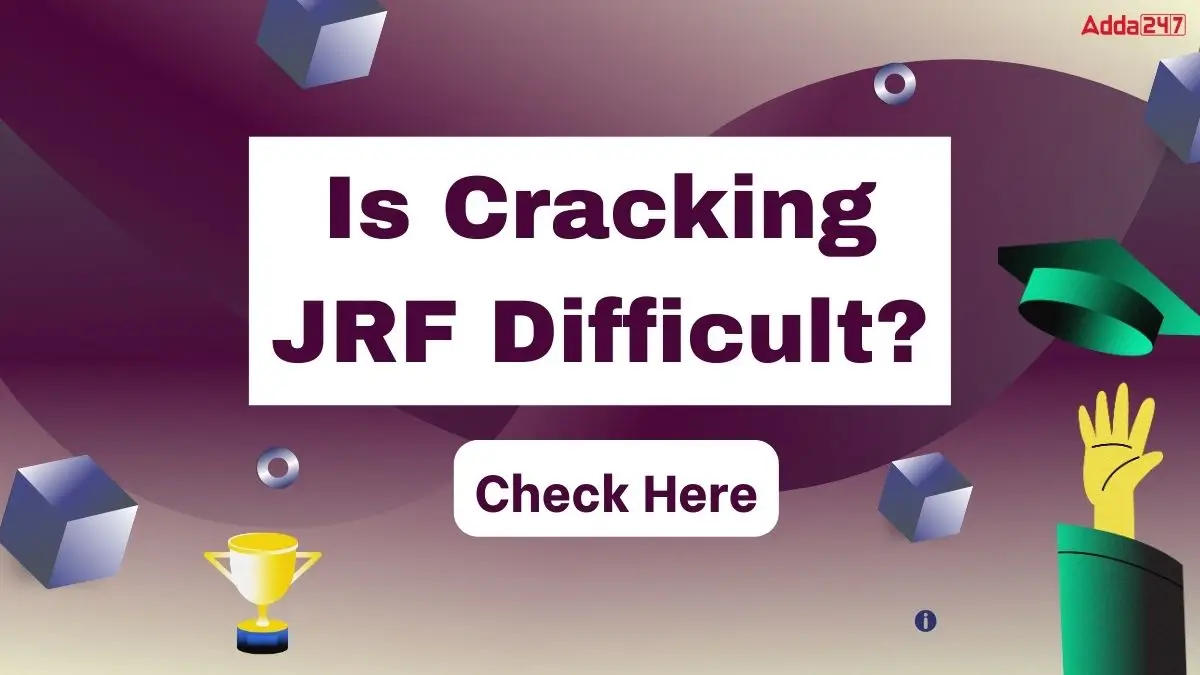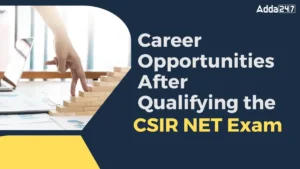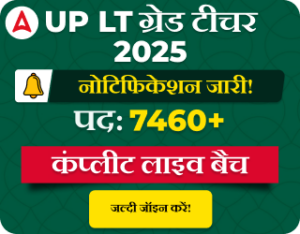Table of Contents
Cracking the Junior Research Fellowship (JRF) exam is a dream for many research and teaching aspirants, but its reputation for toughness often leaves students wondering “Is it really that difficult?” While the exam, conducted by UGC-CSIR, is undeniably competitive with a high cutoff and vast syllabus, success ultimately depends on smart preparation, consistent effort, and the right strategy. Factors like subject mastery, time management, and practice with previous papers play a decisive role. In this article, we break down the real challenges of the JRF exam, analyze what makes it tough, and share actionable tips to help you clear it with confidence.
What is the JRF Exam?
The full form of JRF Exam – Junior Research Fellowship. Candidate who wants to make their career in the research field or wants to take admission in PHD Course have to qualify the JRF Examination, which will be conducted by UGC or CSIR. The overview of the JRF Exam has been provided below.
| Aspect | Details |
|---|---|
| Full Form | Junior Research Fellowship (JRF) |
| Conducted By | University Grants Commission (UGC) and Council of Scientific and Industrial Research (CSIR) |
| Purpose | – To award Junior Research Fellowship (JRF) for research and PhD. – To determine eligibility for Assistant Professor roles. |
| Eligibility | Master’s degree with at least 55% marks (50% for reserved categories). |
| Exam Frequency | Twice a year (June and December). |
| Exam Structure | Paper 1: General aptitude, teaching, and research skills. Paper 2: Subject-specific questions. |
| Subjects Covered | UGC NET -85 subjects, CSIR NET- 5 Subjects |
| Official Websites | UGC NET: ugcnet.nta.nic.in CSIR NET: csirnet.nta.nic.in |
Why JRF is better Than NET?
The Junior Research Fellowship (JRF) and the National Eligibility Test (NET) are both conducted by the University Grants Commission (UGC) and CSIR in India, but they serve different purposes and have distinct advantages. Here’s a detailed comparison to explain why JRF might be considered better than NET:
| Parameter | JRF (Junior Research Fellowship) | NET (National Eligibility Test) |
|---|---|---|
| Purpose | Encourages young researchers to pursue PhD and provides financial support for research. | Determines eligibility for lectureship/assistant professor roles in Indian universities/colleges. |
| Stipend | Rs.37,000/month for the first 2 years; upgradable to Rs. 42,000/month as SRF (Senior Research Fellowship). | No stipend or financial support. |
| Contingency Grant | Annual grant for books, stationery, and research expenses. | Not applicable. |
| Validity | UGC NET – 3 yr, CSIR NET- 2 yr | Lifetime validity |
| Career Focus | Research-oriented; ideal for PhD aspirants and academic research careers. | Teaching-oriented; ideal for lectureship and assistant professor roles. |
| Upgradation | Can be upgraded to SRF after 2 years with increased stipend. | No upgradation or additional benefits. |
| Admission to PhD | Facilitates PhD admission in many universities without additional entrance tests. | Qualifies for PhD admission but may require additional entrance tests in some universities. |
| Financial Support | Provides financial support for research (stipend + contingency grant). | No financial support; only certifies eligibility for teaching roles. |
JRF Validity
The Junior Research Fellowship (JRF) is a prestigious award for aspiring researchers in India, offered through exams like CSIR NET and UGC NET. While both exams provide JRF eligibility, the validity and rules differ slightly. Below is a simple table summarizing the JRF Validity for CSIR NET and UGC NET, along with key details about the fellowship.
| Aspect | CSIR NET JRF | UGC NET JRF |
|---|---|---|
| Validity Period | 2 years (from certificate date). | 3 years (from award letter date). |
Why is the JRF Exam Difficult?
The JRF exam is known for being challenging. Here’s why:
- Tough Competition: Thousands of students appear for the exam, but only a few get selected.
- Huge Syllabus: The subject-specific paper covers a vast syllabus, which can be overwhelming.
- Time Pressure: You need to answer many questions in a short time, so speed and accuracy matter.
- Unpredictable Questions: The exam often includes tricky or unexpected questions to test your understanding.
- Two Papers to Clear: You need to perform well in both Paper 1 and Paper 2 to qualify.
Is the JRF Exam Worth It?
Yes, the JRF exam is definitely worth the effort! Here’s why:
- Finanacial Assistance: JRF Candidate will get finanacial support.
- Research Opportunities: JRF provides financial support for research, helping you pursue your passion.
- Better Career Options: It opens doors to teaching jobs in colleges and universities.
- Prestige and Recognition: Clearing JRF brings respect and recognition in the academic world.
- Path to a PhD: JRF is often the first step toward earning a PhD, which can lead to advanced research and teaching roles.




 How can Candidate Clear NET JRF Cut Off?
How can Candidate Clear NET JRF Cut Off?
 UGC NET Certificate 2025, Download JRF A...
UGC NET Certificate 2025, Download JRF A...
 Career Opportunities After Qualifying th...
Career Opportunities After Qualifying th...





